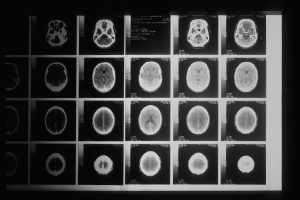Early signs and symptoms of lung cancer
Lung cancer is among the most prevalent and fatal cancers globally. Lung cancer is one of the most studied cancers but still frequently diagnosed in advanced stages, meaning that early detection will be very helpful. Getting into the lungs when treatment works best. However, it can be difficult to detect in its early stages as the symptoms do not show up easily and are similar to other conditions that may be serious but not cancer-related.
This article will help you learn about lung cancer early signs and symptoms, why is important to catch it early on, and what to do if you notice the symptoms.
Why Early Detection Matters
Broadly, lung cancer can be classified into two main types: non-small cell lung cancer (NSCLC) and small cell lung cancer (SCLC). While the symptoms typically differ depending on the type, size, and location of the tumour, both forms may show similar early signs. Because early lung cancer does not cause symptoms, most people do not have major warning signs until the disease is advanced. And when there are symptoms, they may be mistaken for other illnesses, such as the common cold or a viral respiratory infection.
Recognizing it early and getting a medical evaluation soon can make a big difference. If detected early, surgical, radiation therapy, and targeted therapies can greatly improve your prognosis. Sadly, lung cancer can have a poor prognosis if diagnosed late, as the disease may have already spread to another area of the body by the time it presents with symptoms.
Coughing that Won’t Go Away
A persistent cough is one of the earliest and common signs of lung cancer. Yes, when smoking, allergies or a respiratory infection can trigger a chronic cough; however, experts note that new or unusual coughs should raise red flags and are probably due to something other than those causes, especially if the nasty habit is not going away after several weeks. A cough that progressively gets worse or produces bloody sputum is concerning and can indicate lung cancer.
When the tumor is located in the airways, it can also cause a more persistent and severe cough. With the tumor irrupting or blocking the airways much more, making free air passage hard—persistent cough reflex instigates. It is important to pay attention to any alterations in your cough that should be addressed with a doctor, particularly if it does not resolve with normal therapy.
Shortness of Breath
Dyspnea, or shortness of breath, may also be an early symptom of lung cancer, especially when it occurs over time. Because air cannot flow freely into the lungs when there are lumps forming, your breathing becomes laboured. This symptom is usually most apparent during physical activity or exercise, but as the tumor grows larger, the shortness of breath may occur at rest.
Lung cancer can also block the airways and prevent air from reaching certain parts of the lungs, which causes a sensation of not being able to breathe (i.e., dyspnoea). Moreover, tumors that press against the diaphragm or chest cavity can cause discomfort or tightness in the chest and make breathing much more difficult.
Chest Pain
Persistent or steadily worsening chest pain could be an early sign of lung cancer. The pain can be in one part of the chest or is heavy aches close to the deep way. The pain can be sharp or dull and may worsen with deep breathing, coughing, or laughing. Xle96pGM, It also may gallop out into the shoulders, back, or arms, which can confuse diagnosis from other diseases—including heart disease and musculoskeletal problems.
The space-filling property of the tumor allows it to infiltrate adjacent tissues such as nerves, pleura (the lining around the lungs), and blood vessels, thereby eliciting pain. When it is also present, the lung cancer will generate fluid accumulation within the chest (pleural effusion), which can be a cause of feeling chest pain and discomfort.
Hoarseness or Voice Changes
Cancer of the lung that involves the upper airways or vocal cords can lead to changes in voice. A tumor putting pressure on the recurrent laryngeal nerve, which controls the muscles in the voice box that help produce sound when talking, may cause hoarseness or a raspy/strained voice. Although these are primarily symptoms for lung cancer that has metastasized into surrounding regions, voice changes can also be an early indicator.

If you observe a change in the sound of your voice, especially if it lasts for several weeks, do not hesitate to seek medical assessment. And beware that hoarseness can represent a number of conditions, like lung cancer.
Unexplained Weight Loss
And early on, another potential red flag of lung cancer is losing weight unexpectedly. Over a period of time, cancer cells can change your metabolism and cause a lack of appetite, resulting in significant loss of weight. The body may expend more energy during the immune response to cancer, resulting in even greater levels of loss of body mass.
Sudden weight loss also warrants a trip to your health care provider, especially if you’re experiencing other symptoms such as fatigue, pain or chronic cough, according to the report. While you may lose weight for a number of reasons, we do not want to miss cancer — or other severe conditions if discovered early on.
Fatigue and Weakness
Both early and advanced lung cancer can experience unusual tiredness or weakness as a form of fatigue. Fatigue may be caused by several factors, including the body’s response to cancer, low level of oxygen in the blood or disturbed equilibrium due to the tumor. As the cancer cells continuously draw energy from surrounding tissues, this can leave the patient feeling drained and have a big impact on their ability to function in daily life.
While the presence of fatigue in itself is not very worrying, if associated with some symptoms such as unexplained weight loss, cough or shortness of breath, it should lead to a consultation with the doctor. One of the earliest indications that something isn’t quite right with the body, fatigue can indicate a bigger problem such as lung cancer — especially when coupled with other symptoms.
Frequent Respiratory Infections
An early symptom of lung cancer is repeated respiratory infections, such as pneumonia or bronchitis, that do not respond well to conventional treatment. If a tumor starts to grow, it could cut off the airways or allow more bacteria or viruses to invade the lungs and cause more frequent infections. Sometimes, tumours can reduce the immune system response, and this also means more infections.
We strongly advise discussing with your healthcare provider if you experience recurrent or relentless respiratory infections despite treatment. Frequent lung infections are a serious indication that something worse is going on in your lungs — such as lung cancer.
Swelling of the Face and Neck
If the tumor obstructing the superior vena cava, a major vein that delivers blood from the upper body to the heart, lung cancer patients may have swelling in their face, neck or arms. When this happens, it is sometimes referred to as superior vena cava syndrome (SVCS) and can result in the blockage of blood and fluid, which can lead to swelling in the upper part of the body.
Symptoms: SVCS may causea sensation of fullness or tightness in the neck, swelling of the face, and distended dilated veins; look at ingroupage that is present on day 18 in the chest and neck region If you experience any sort of excessive swelling in your upper half, especially if it is combined with breathing problems or a chronic cough, get help right away.




Leave a Reply